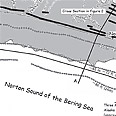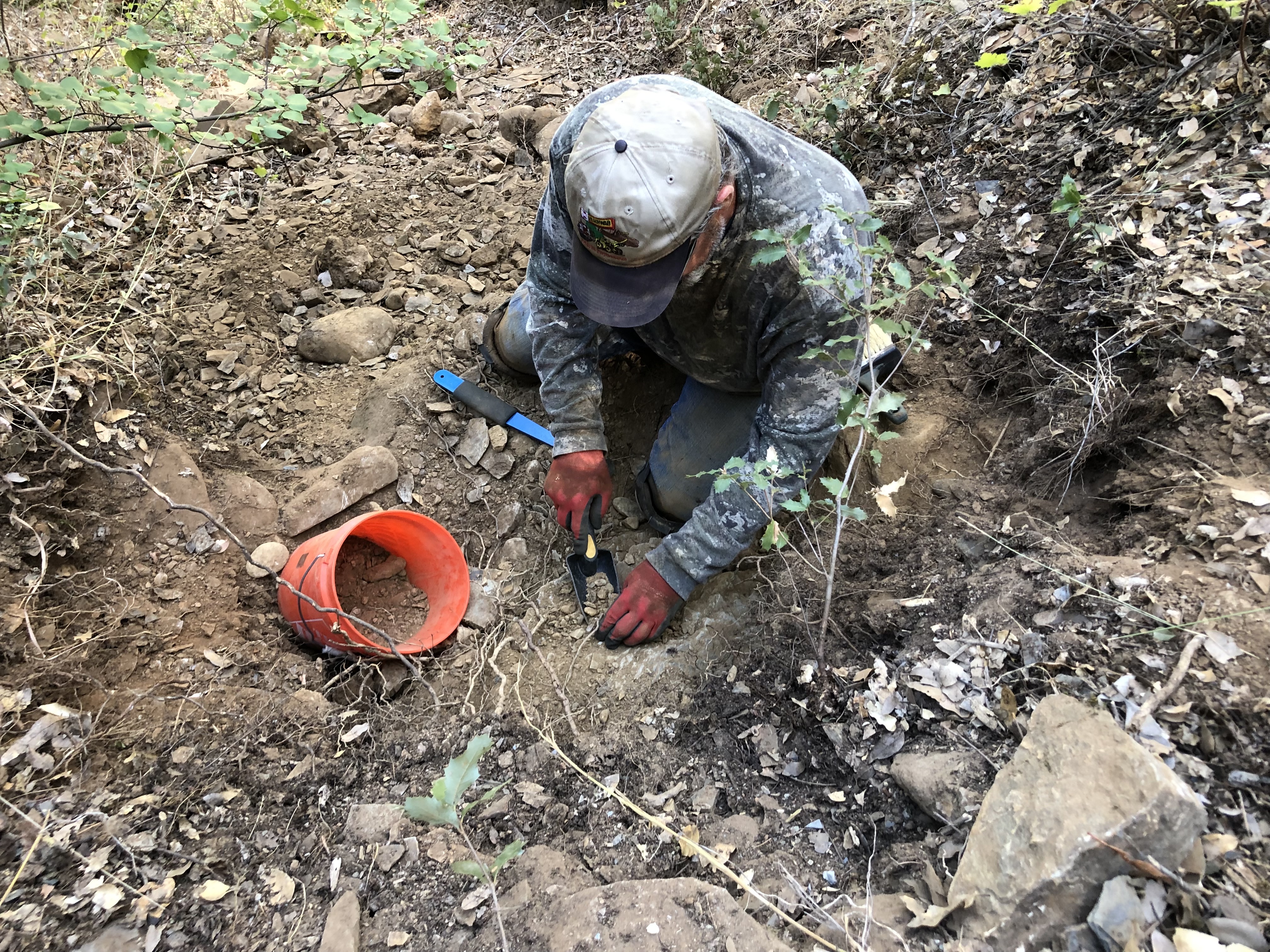All Articles
Legislative Update
April 1999 by Robert Sanregret
Summary
1. American Land Sovereignty Protection Act Introduced in Congress. Rep. Don Young (R-Alaska) has introduced H.R.883 with 137 cosponsors; and companion S.510 introduced by Sen. Campbell (R-CO).2. Controversial Land Acquisition Programs Proliferate—In and Out of Congress. An aggressive bipartisan push is on to acquire annual Federal funding of $1-$2 billion to buy private land; and the Congressional Western Caucus does not support the program.
3. Revised BLM "3809 Regulations" Would Devastate Small-Scale Mining. Secretary Babbitt is aggressively pushing ahead with his revision, despite the Congressional moratorium; and citizens have until May 10 to comment upon Babbitt's proposed regulations.
4. Nevada at Top and California Near Bottom of "Mining Attractiveness Index." Recent study identifies overall attractiveness to the mining industry of various North American jurisdictions.
5. Secretary Babbitt Pressures California Headwaters Forest Sale. Babbitt successfully pressured the landowner into going ahead with the Headwaters sale intimating that the ESA could be "vigorously enforced" against all of the owner's land.
Comments
In the last Congress, the American Land Sovereignty Act passed in the House by a strong vote of 236-191. The Bill was introduced in the Senate in late 1998 by Senator Campbell, but died without a vote. The early introductions of H.R.883 and S.510 in the current 106th Congress, bodes well for ultimate passage.
These proposed Bills are assertions of the power of Congress, under the Constitution, to manage U.S.land by prohibiting the designation of UN-sponsored Biosphere Reserves or World Heritage Sites without the express consent or approval of Congress. Most of our National Parks and National Monuments have already been designated U.N. World Heritage Sites, including the Statue of Liberty and Independence Hall.
The current method of selecting UN World Heritage Sites and Biosphere Reserves in the United States is by "cooperative consultation and agreement" between the U.S. President and the United Nations—usually under the ambiguous designation of "international agreements," with no public hearings, no public announcements, and without consultation, advice, or consent of the Congress.
There is a unpublicized UN requirement however, that if the designation of a World Heritage Site or Biosphere Reserve is opposed by local residents or local government, the designation must be rejected by the UN! The problem lies in the fact that people are often not aware of the proposed designation or what it involves.
2. Controversial Land Acquisition Programs Proliferate—In and Out of Congress. Several controversial "land acquisition" bills have been introduced in Congress. Chairman Don Young (R-Alaska) has chaired a House Resources Committee hearing on his H.R. 701, the Conservation and Reinvestment Act, as well as on H.R.798, the Permanent Protection for American Resources 2000 Act, introduced by Rep. George Miller (D-CA). H.R. 701 would provide $900 million annually for Federal land acquisition, while Miller's H.R. 798 would guarantee $2.3 billion annually. The operating device for these bills would be perpetual funding of the Federal Land and Water Conservation Fund (LWCF), with the specific purpose of funding Federal purchases of private property and in-holdings.
On March 3, the Congressional Western Caucus (Congressmen from the Western U.S.) met, at the request of Chairman Young, to consider supporting H.R. 701—but no vote took place. The matter remains volatile, controversial, and undecided.
Representatives Young and Miller are having considerable difficulty convincing Westerners, conservatives or grassroots groups to support Young's $900 million H.R. 701, much less Miller's $2.3 billion H.R. 798. Your members of Congress, and Resources Committee Chairman Don Young, would appreciate hearing your views on these bills.
3. Revised BLM "3809 Regulations" Would Devastate Small-Scale Mining. In February, Secretary Babbitt published his Draft Environmental Impact Statement (DEIS) on the Surface Management Regulations for Locatable Mineral Operations(43 CFR3809). This went ahead despite a specific Congressional moratorium on Babbitt's unauthorized revision of the regulations, and ignoring a request from the Western Governors Association to delay publication until completion of a National Academy of Sciences (NAS) Report.
Secretary Babbitt's proposed new "3809 Regulations," if implemented, would be devastating for mineral exploration and development in general, and particularly for smaller-scale operations. The proposed regulations would stiffen the criteria for, and definition of, various important terms—including "prudent operators", "unnecessary or undue degradation", "casual use", and others. A validity exam would be required before approval of a Plan of Operations for certain segregated or withdrawn areas. Bonding ("financial guarantees") would be increased, with 100% Reclamation Bonds required. The performance standards, coordination, inspections, monitoring and compliance with various other State and Federal laws and regulations would be tightened considerably. The proposed regulations would, under certain circumstances, allow "citizens" to accompany BLM Inspectors on their inspections of mining property.
Babbitt's "response" to Congress, and his explanation for proceeding ahead full bore with 3809 Revisions is that the Congressional legislation required "only" that publication of a "final" rule be postponed until two months after the July 31 deadline for the completion of the NAS Study—and that Babbitt's proposed DEIS is not yet "final."
We have until May 10 to comment upon the proposed regulations. Comments may be mailed to: 3809 Draft EIS, attn: Paul McNutt, P.O. Box 12000, Reno, NV 89520-0006. Or, comments may be sent electronically to: 3809EIS@wo.blm.gov.
4. Nevada at Top and California Near bottom of "Mining Attractiveness Index. "Canada's Fraser Institute has published its "1998/99 Survey of Mining Companies Operating in North America," considering investment attractiveness of locales based on mineral potential, taxation, regulatory consistency and land use policies. The jurisdictions surveyed were the U.S. states, Canadian provinces and the countries of Mexico and Chile. Chile is known as an attractive mining jurisdiction, and was added for comparison.
Nevada ranked first with Ontario second, both based on high mineral potential and pro-mining public policies. The next ten in rank were Chile, Mexico, Manitoba, Quebec, Saskatchewan, New Brunswick, Alaska, Arizona, Idaho and Utah. The lowest scoring jurisdictions were California, Michigan, Minnesota, British Columbia, Wisconsin and Prince Edward Island. Wisconsin scored low despite excellent mineral potential, based on its anti-mining attitude and its moratoruim on mining. California's low score, also despite excellent mineral potential, was based on bad public policies. The chairman of one mining company participant referred to California as "a horror story," based on its long permitting process. Most of the lower scores were based on jurisdictions with good mineral potential, but negative public policies on taxes, land tenure or permitting.
5. Secretary Babbitt Pressures California Headwaters Forest Sale. For more than two years, the owners of 10,000 acres of forest land in California, 250 miles north of San Francisco, have been in negotiations and discussions regarding the sale of this forest land to the State and Federal governments as a public preserve. The 10,000 acres include about 5,000 acres of old-growth redwoods, and is generally referred to as the California Headwaters Forest. The landowner is Pacific Lumber Co. and its Texas-based parent, Maxxam Corp. The State and Federal governments had recently approved the purchase of the Headwaters Forest for $480 million.
On February 26, however, Pacific Lumber Co. changed its mind and notified President Clinton and Senator Dianne Feinstein (D-CA) of the company's rejection of the government offer, The owner's reason for rejecting the sale was that the restrictions by the government and by environmentalists on Pacific Lumber's other properties would halt the company's planned feasible expansion and would force layoffs. Company president John Campbell said: "We had an obligation to our investors, and to the men and women who work for the company."
This rejection by Pacific Lumber brought immediate vehement responses from the environmentalists and from Feinstein, who was the "point man" in pushing the purchase of the Headwaters Forest for the Administration.
The notedly strong "responses" of the government to Pacific Lumber's rejection of the $480 million offer included a threat by Interior Secretary Bruce Babbitt that if Pacific Lumber Co. refused to sell the land, the Interior Department would "vigorously enforce the Endangered Species Act to protect wildlife on Pacific Lumber Co. lands."
Under this pressure, Pacific Lumber relented, withdrew its "rejection," and finally became a "willing seller" by agreeing to sell its land to the government. In the first week of March, the sale of the California Headwaters Forest went through.
Conclusion
You should let your views be clearly known to your members of Congress and to the Chairman and members of the relevant Congressional Committee.
Following are the addresses and telephone numbers of your U.S. Senators and Representatives:
Direct your letters, calls, and faxes to both their local and Washington, D.C. offices.
Senator (fill in the blank)
U.S. Senate
Washington, D.C. 20510
(202) 224-3121
Representative (fill in the blank)
U.S. House of Representatives
Washington, D.C. 20515
(202) 224-3121

Melman on Gold & Silver
Seldom in the 22 years we have been writing in this space have we ever seen a parade of such important events pass along the world’s newswires and print media.
ICMJ 9th Annual Photo Contest Results
See the top 10 winners!
Mining Stock Quotes and Mineral & Metal Prices
Happy New Year 2021!
Ask The Experts: Can you help me identify these items?
Q: Can you help me identify these items?
Bering Sea Gold—Part I
 The popularity of the new Discovery Channel series Bering Sea Gold has peaked interest in what gold resources are offshore of Nome, Alaska. The Cape Nome mining district is world famous...
The popularity of the new Discovery Channel series Bering Sea Gold has peaked interest in what gold resources are offshore of Nome, Alaska. The Cape Nome mining district is world famous...
Subscription Required:
The Bawl Mill
• Editorial—BLM 43 CFR 3809 Revision Status
• Our Readers Say
• Miner Says Mining Could Return to Boulder
• Arizona Mines and Minerals Releases New Directory
• Onerous New Mining Rules Adopted in Washington State
• U.S. Sued for Failure to Guard Rare Species
• Miner Charged in Death of Downieville Miner
• Senator Warns Against Proposal to Sell Some IMF Gold
• Dry Placers in the Kamma Mountains, Nevada
• Company Notes
• MCS Index Shows Decrease in Mining Costs
• Over the Divide
• Picks & Pans: Confessions of a Small Miner—Part II
• The Saga of Sand Mountain
• Nevada County Feeling Pain of Slumping Mining Industry
• There's Gold in Those Tailings
• Gold at Ragged Top, Arizona
• Increase in Silver Demand by Photography Industry
• Melman on Gold & Silver
• Looking Back
• Mining Stock Quotes and Mineral & Metal Prices
Free:








